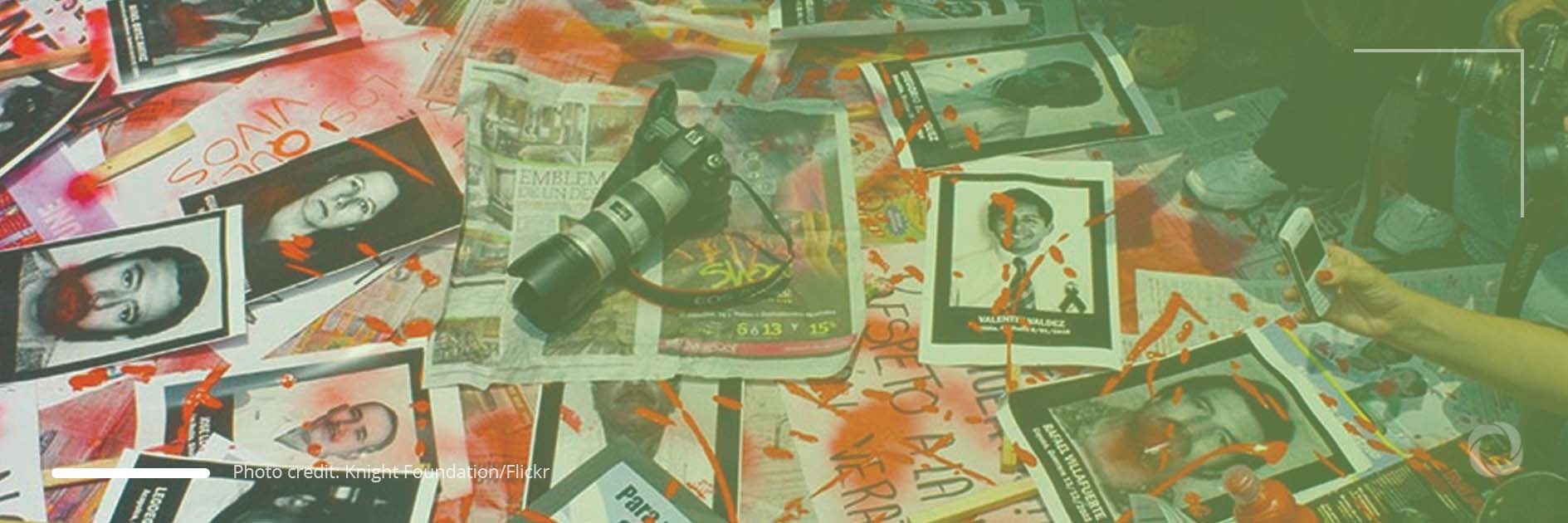Five journalists have been murdered in Mexico since the beginning of 2022 which is the highest number in 10 years. Many other media representatives regularly receive threats, especially those working on topics that could reveal corruption or crimes perpetrated by organized criminal groups or members of the political elite. Emmanuel Colombié, Director Regional of Reporters Without Borders in Latin America, explained the reasons behind the journalists’ murders in an interview with DevelopmentAid.
DevelopmentAid: The number of journalists murdered in Mexico has been on the rise. What are the reasons behind these frightening figures? Has anything particular happened that has prompted this state of affairs?
EC: There is nothing new happening in Mexico but it is scary that four journalists were killed in just one month. Last year there were at least eight journalists killed in connection with reporting activities but for at least the last decade we have had around 10 journalists killed per year on average and I’m only talking about the murders that were directly connected to their journalistic work. Since the current President, Manuel Lopez Obrador, took over power at least 28 journalists have been killed. So, Mexico is at the top of the list of the most dangerous countries for journalists in the world, ahead of those countries that are officially at war and Mexico is not at war but the figures are like those from countries that are. Journalists here face threats and physical attacks on a regular basis.
DevelopmentAid: Are the reasons behind the deaths of the four journalists killed in January known?
EC: According to our investigation into the murders of the journalists in January, we know that three out of four of them died due to their journalistic work. All of them were denouncing the corruption of the local political scene and the connections of political parties to organized crime. This is a very common scenario and the way they were killed is also popular and was the same in all three cases. They were killed by people who were paid to do that. The perpetrators tracked down the journalists in front of their houses or editorial offices and they shot them, leaving their colleagues to witness their murder.
DevelopmentAid: What are the chances of finding the culprits?
EC: The rates of impunity in the case of crimes against journalists in Mexico are between 95-99%, and I mean those who are ultimately responsible for the murders, not their paid executors. Sometimes the actual killers are caught by the police and go to trial and then to jail but those people who instructed the killers remain unpunished. Impunity creates a kind of vicious circle as it sends a message to society: “If you kill a journalist, you won’t be found by the authorities and you won’t go to jail.”
DevelopmentAid: Do you remember any cases within the last three to four years when the culprits were sentenced?
EC: One of the very few cases is the case of journalist Miroslava Brich who was killed in March 2017 and we managed to get one of the culprits who was actually responsible for the crime sentenced but this is an exception. Almost all the cases in the last 20 years remain unpunished.
DevelopmentAid: Why do so many crimes against journalists remain unpunished?
EC: Due to the corruption of the political classes. It is very difficult to launch efficient investigations at the local level. In many cases, the main culprits for these murders are politicians themselves so they do anything they can to block investigations. The murders of journalists are investigated by federal not local prosecutors and when the federal prosecution decides not to undertake the case, the murder remains unpunished. Some cases never reach the federal prosecutor due to corruption at the local level and drug cartels are also involved in this process too. They also try to influence local officials to block the investigation. So, we are talking about a mix of corruption and violence that leads to the murder of journalists. And at the end, the main victim here is democracy and freedom of speech as many journalists are afraid to write the truth and thus their readership does not obtain a full picture of what is happening in the country.

